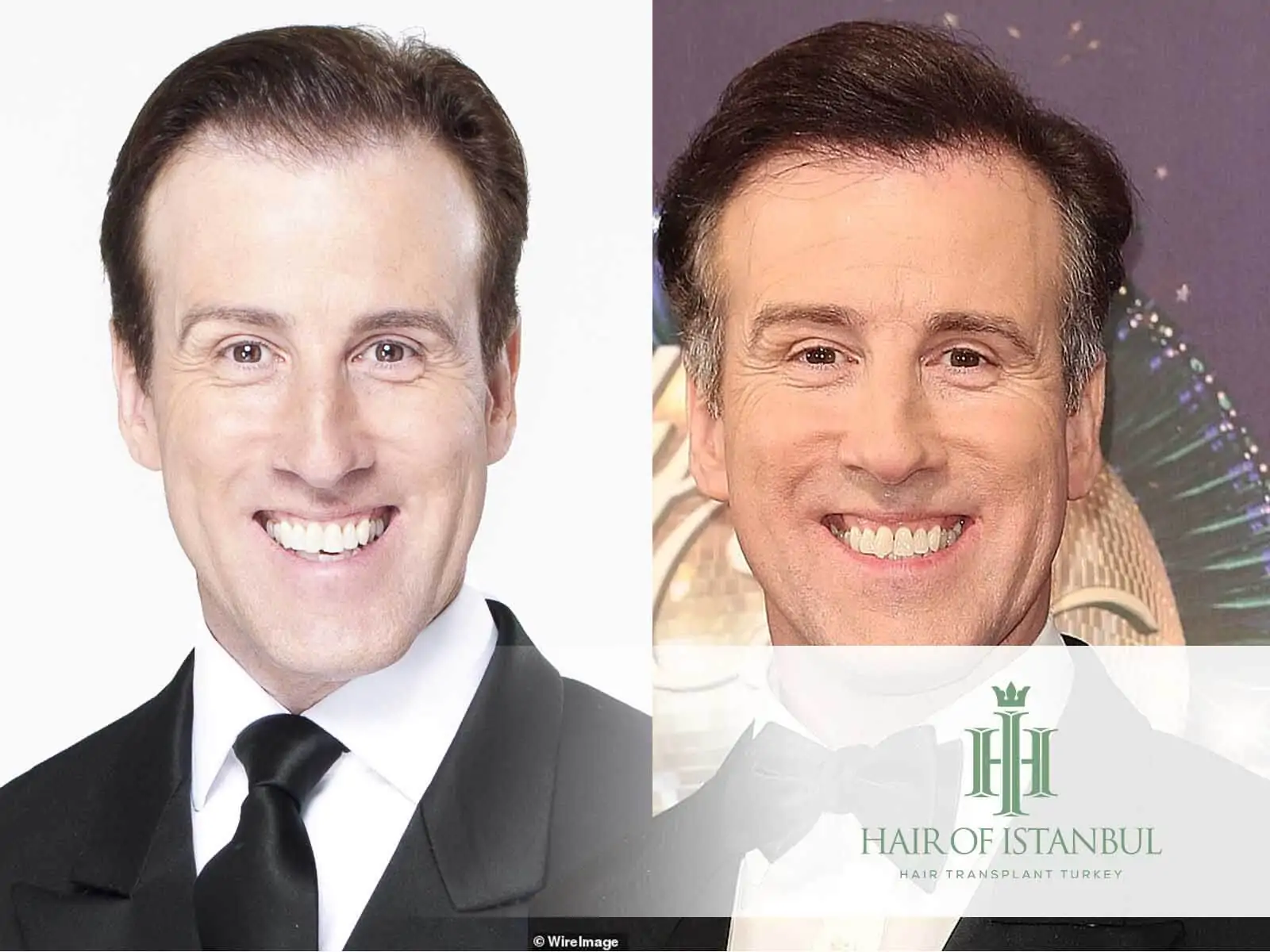Blood Test for Hair Loss: Diagnosing the Underlying Causes!
Unraveling the mystery of hair loss often begins with a journey beneath the surface, where the blood holds secrets to one’s health. When strands start to thin or bald patches appear, it might be more than what’s visible to the eye.
A blood test can be a crucial step in understanding the root cause of hair shedding. It goes beyond genetics and lifestyle, delving into the realm of vitamins, hormones, and minerals that fuel our body and impact hair health. By examining these elements, individuals can take a proactive stance against hair loss, armed with knowledge and power to restore hair vitality.
So, let’s explore how a simple blood draw can unfold comprehensive insights, guiding towards a path of rejuvenation and well-being.
What Blood Problems Cause Hair Loss?
Hair loss is not exclusively caused by male pattern baldness; various blood-related issues can also lead to thinning strands. Iron deficiency is a notable culprit. Many healthcare professionals assert that a lack of iron can disrupt the hair growth cycle, leading to shedding. However, it’s important to acknowledge that this connection has its detractors who offer alternative explanations for hair loss.
While the debate continues, understanding the impact of iron and other nutrients on hair health is crucial. A balanced diet, rich in essential vitamins and minerals, could be a key factor in maintaining lush, healthy hair. As research evolves, so does our understanding of the complex interplay between nutrition, health, and hair vitality. [1]
Also Read: When Can I Wash My Hair Normally After Hair Transplant?
Which Blood Test is Required For Hair Loss?
When it comes to diagnosing the cause of hair loss, trichological blood tests play a pivotal role. These tests delve into various aspects of your health to uncover potential underlying conditions affecting hair growth. Below is a table outlining key tests and what they measure: [2]
| Thyroid Hormone Levels | Measures the production of hormones by your thyroid, indicating if it’s underactive or overactive, which can influence hair growth. |
| Sex Hormone Levels | Assesses the levels of male and female hormones, which are crucial for maintaining hair growth in both men and women. |
| Iron & Ferritin Levels | Indicates if hair loss might be a symptom of anemia or iron deficiency, also checking the connection between iron levels and hair health. |
| Complete Blood Count (CBC) | Measures different components of your blood, including red and white blood cells, to detect signs of inflammation or autoimmune conditions. |
| Vitamin D Levels | Since Vitamin D deficiency can be linked to autoimmune conditions, its levels are crucial in understanding hair loss like alopecia areata. |
| Vitamin B Levels | Tests for deficiencies in B vitamins, which are vital for healthy hair. |
| Blood Sugar Levels | Checks for diabetes, a significant indicator as Type 2 diabetes can be associated with hair loss. |
These tests provide a comprehensive view of your health and can be crucial in determining the cause of hair loss, leading to more targeted and effective treatments. By understanding and addressing the root of the issue, you can embark on a path to better hair health and overall well-being.
For Male
In men, hair loss often presents as male pattern baldness, but it’s important to recognize that this isn’t the sole cause. A range of factors can lead to hair thinning, including iron deficiency. This particular issue can significantly disrupt hair’s natural growth cycle, leading to noticeable hair loss.
While male pattern baldness is common due to genetics and hormonal changes, nutritional deficits, especially in iron, can exacerbate the situation.
Addressing these deficiencies through diet or supplements, alongside consulting healthcare professionals, can be crucial in managing and potentially reversing hair loss. Understanding the various causes allows for a more targeted approach to treatment and maintains hair health.
For Female
In women, hair loss often requires a more nuanced approach to diagnosis and treatment. Unlike men, women rarely experience pattern baldness in the same way, leading to a more detailed examination of potential causes.
Blood tests are the first step in this detailed investigation, assessing a range of possible deficiencies and hormonal imbalances. It’s critical to identify the root cause, be it nutritional deficiencies, hormonal fluctuations, or other underlying health conditions.
Consulting a healthcare professional is essential in navigating this complex issue. Through a comprehensive analysis, including the tests mentioned previously, a clear path can be established to address and treat hair loss effectively in women.
Also Read: How Many Hair Transplants Can a Person Have?
What Vitamin Deficiency Causes Hair Loss?
Vitamin deficiencies can play a significant role in hair loss, affecting the hair growth cycle and overall health of the scalp. Identifying and addressing these deficiencies is crucial for hair health. Here’s a table outlining the key vitamins and their link to hair loss:
| Role in Hair Health | Impact of Deficiency | |
| Vitamin A | Regulates hair growth; too much can lead to hair loss. | Excessive amounts, known as Hypervitaminosis A, can cause hair loss. |
| Biotin (Vitamin B7) | Supports hair growth and health. | Deficiencies can lead to thinning hair. |
| Iron/Ferritin Low | Supports hair growth cycle and oxygen delivery to scalp. | levels can disrupt the hair growth cycle, leading to shedding. |
| Vitamin C | Aids in iron absorption, collagen production, and overall hair health. | Deficiency can weaken hair, making it prone to damage and loss. |
| Vitamin D | Believed to stimulate hair follicles and maintain hair cycle. | Deficiency may lead to hair loss; the role is complex and still under study. |
Addressing these deficiencies often involves dietary changes or supplementation, guided by a healthcare professional. A balanced approach to nutrition can significantly impact hair health, promoting a fuller, healthier head of hair. It’s also essential to monitor vitamin intake to ensure levels are optimal for not just hair, but overall health. [3]
How Much Hair Loss is Normal?
Shedding hair is a natural part of the hair growth cycle and not always indicative of a health problem. On average, losing about 50 to 100 strands per day is considered normal for most people. This hair loss often goes unnoticed as new hair is continually growing at the same time. Factors like stress, diet, and hormonal changes can increase shedding temporarily.
It’s important to understand that this daily shedding is a regular process, and noticing a few strands on your hairbrush isn’t necessarily a cause for concern. However, if you observe a significant change in volume, texture, or the amount of hair shedding, it might be time to consult a healthcare professional to rule out underlying issues. [4]
Also Read: Traction Alopecia: When Is It too Late? The Most Important Signs!
How Can I Test My Hair Fall At Home?
To understand the extent of hair shedding, two simple methods can be employed at home: the Pull Test and the Comb Test.
These tests provide a quick and basic understanding of hair fall and can indicate if further investigation might be needed.
Here’s a brief table describing each test:
| Pull Test | Gently pull approximately 60 strands of hair. It’s normal to see about 5-8 hairs in your hand. If you find more than 15 hairs, it may suggest an underlying issue. |
| Comb Test | Comb your hair for a minute over a white sheet. Losing more than 10 hairs can be a sign of excessive shedding and may warrant further investigation. |
These tests are not diagnostic but can be a first step in determining if the hair loss is within normal range or if it might be time to seek advice from a healthcare professional.
It’s important to conduct these tests gently and occasionally, as overdoing them or using excessive force can itself lead to hair breakage and loss. If you’re concerned about the amount of hair you’re losing, it’s always best to consult with a healthcare provider for a comprehensive evaluation. [5]
CONCLUSION
As we conclude, it’s essential to recognize that while hair loss can be a complex issue, the expertise and treatment options available at Hair of Istanbul are both extensive and personalized. Our clinic is renowned for its meticulous approach to hair transplantation, ensuring each patient receives a bespoke solution that looks natural and lasts.
Our team of seasoned professionals is dedicated to excellence, utilizing the latest advancements in technology and technique to achieve superior results. We understand the importance of a full head of hair to one’s confidence and overall well-being, and we are committed to helping our clients achieve their desired outcomes.
Join us at Hair of Istanbul, where your journey to reclaiming your hair’s vitality is supported by a team of experts who are as invested in your satisfaction as you are.
References:
- [1] Lloyds Pharmacy Online Doctor – Can low iron cause hair loss? – https://onlinedoctor.lloydspharmacy.com/uk/hair-loss-advice/can-low-iron-cause-hair-loss
- [2] Rebecca M, Jan 1, 2023 – Hair Loss Blood Tests: Diagnosing Female Hair Loss – https://wimpoleclinic.com/blog/hair-loss-blood-tests-diagnosing-female-hair-loss/
- [3] Hind M. Almohanna, Dec 13, 2018 – The Role of Vitamins and Minerals in Hair Loss: A Review – https://www.ncbi.nlm.nih.gov/pmc/articles/PMC6380979/
- [4] NHS, Oct 23, 2017 – Hair loss – https://www.nhs.uk/conditions/hair-loss/
- [5] Ds Laboratories, Nov 11, 2020 – Hair Loss Test – 2 Simple Ways To Check At Home (Pull Test & Comb Test) – https://dslaboratories.com/blogs/news/hair-loss-test-pull-comb-test








